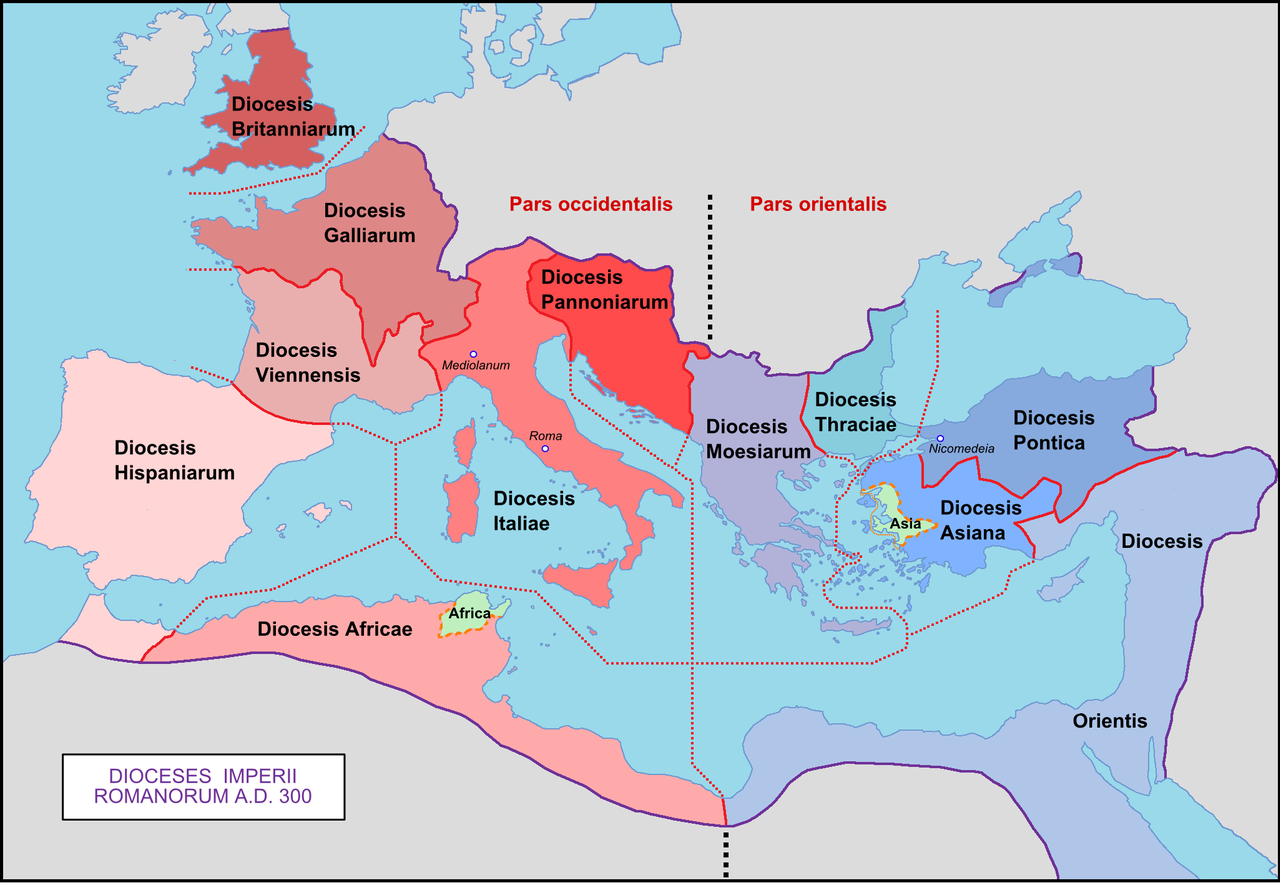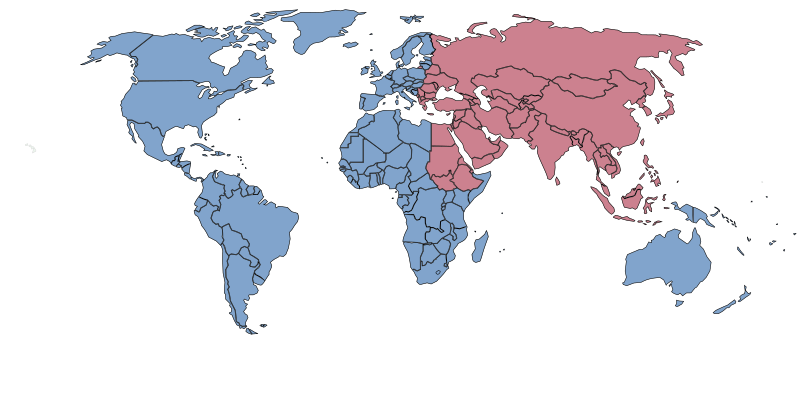Bekas: The Map you are showing (1st one) is more tied to what the Pre-Nicene Catholic Church, and by Catholic I mean here the United West-Latin and Eastern Churches, which at this time would be centered in Rome, Antioch and Alexandria [ Canon 6 of the Council of Nicea recognized 3 Major Sees with Primacy, Rome, Antioch and Alexandria]. Constantinople was not yet founded and it would not be till later Councils. Contantinopile in 381 elevated it ahead of the other ones, which would be a point of contention in later councils (Ephesus and Chalcedon). Now you are correct, despite what some secularist here will argue, that it was Christendom, after ancient Greece and Rome, that defined what was Europe. The Greeks first defined Europa, and it was not the Europe today, the Romans expanded on the Greek definition and assigned Europe to areas that came under its jurisdiction. But from 450AD onward, and in particular by the time of the Holy Roman Empire, what became Europe was defined by the Pope in Rome and Christendom, specifically Latin Tradition. Around 1000 AD when Poland and Russia both became Christian, Poland accepted Latin-Rite (Roman) and thus came under direct jurisdiction of Rome. Hence, Poland would experience the Latin Tradition in Church Music (consider the great pieces by Palestrina, Allegri, etc) along with have more cultural contacts with the rest of Western Europe. Russia on the other hand accepted the Byzantine-Tradition and came under jurisdiction of the Patriarch of Constantinople. Well by 1054, the East-West Schism resulted in a drifting of West and East, of course the Ottoman-Muslims would conquer Constantinople 1453 further isolating many Orthodox Christians from their spiritual patrimony and history.
The border between Europe and Asia (Ural Mountains) is a 20th century boundary.
But if we are honest, there is no natural scientific boundary of Europe. Eurasia is one land mass, so in that context, Europe and Asia are really sub-continents or divisions of Eurasia. In fact, Europe and Asia sit on the same plate. India, called an Asian Sub-continent sits on a different plate from Eurasia (but is in Asia). Australia sits on its own plate, Greenland does not, it in fact sits on the North American plate hence called a North American sub-continent. One is a continent (Australia) one is not (Greenland). The Arabian peninsula is its own plate, but since the ancient Greeks put it in Asia, it still is. But is it a separate continent? Well it is attached to Asia. The Philippines and Indonesia sit on separate plates yet are part of Asia.
Africa sits on 2 plates, the Nubian and Somalian. But currently they are connected so 1 continent, but they are pulling apart. The Somalian is drifting towards the Arabian and Indian and in 10 million years or so, will totally break off from the rest of Africa. Since the Horn of Africa and parts of East Africa sit on a different plate from the rest of Africa, will it constitute a new continent? or follow the convention of how what is Asia actually is made up of countries on 4 different plates. The African-Nubian plate is retreating from Eurasia, and there was an article that this process caused those major earthquakes in Greece and Turkey in 2020.
Europe under no scenario is its separate plate. Yet it is its own Continent. To me this is based on the Greeks, Romans, enlightenment , renaissance and yes it influence from Christendom as well.



